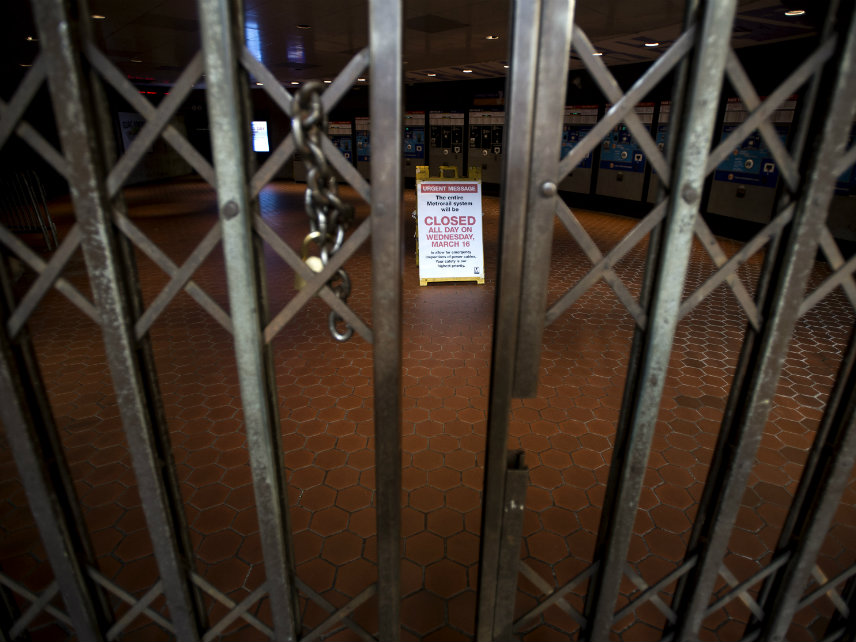D.C. Councilman Says New Taxes on Uber, Booze Are 'Very Exciting'
Those taxes will fund the D.C. subway system, and that councilman just so happens to be chairman of the system's board of directors.

It's been a long night in the nation's capital, and you've had a little too much to drink. The Metro is already closed—of course—so you grab an Uber to get back to your apartment.
Thanks to a host of new taxes approved by the Washington, D.C., City Council this week, this very scenario—one that plays out hundreds, if not thousands of times every weekend in D.C.—will net a whole bunch of tax revenue for the city's subway system. You know, the one that wasn't running when you tried to use it.
Mayor Muriel Bowser signed a bill last month promising more than $178 million in annual "dedicated funding" for the Washington Metropolitan Area Transit Authority (WMATA), which is just another way of saying that people who never use the Metro or any other WMATA service (like buses) will soon be on the hook to pay for them anyway. The funding is necessary, WMATA says, because costs have climbed while ridership has fallen That has happened because consumers choose to spend their money on more reliable options like Uber, fleets of scooters, and other transportation methods that don't burst into flames or shut down for months at a time.
To fund that promise, the D.C. City Council this week gave preliminary approval to new taxes on alcohol and on ride-sharing apps. The current penny-per-dollar tax on Uber, Lyft, and the like will increase by a whopping 500 percent, while the tax on alcohol gets a more modest bump from 10 percent to 10.25 percent, and the city's general sales tax will increase increase from 5.75 to 6 percent. The new taxes will take effect in October.
Increasing taxes on consumers to fund the bloated Metro system is "very exciting," Council member Jack Evans told WAMU, a local radio station.
Other people in D.C. might be less enthused. But then Evans isn't like most people in the city. Besides sitting on the City Council, he's also the chairman of the WMATA's board of directors—so his support for the new taxes is literally a vote in favor of giving himself more money to spend. He was a champion for the "dedicated funding" plan too, no surprise. After it's passage, he told WAMU that the vote was "a historic occasion."
"I would say this is the most important thing that's happened at Metro in the last 40 years since Metro started," he proclaimed.
That sentiment gives you an idea about the WMATA's priorities. Obtaining a stream of tax revenue that's not dependent on actually serving customers is "the most important thing," not the opening of new lines, or the adoption of new technology, or the maintaining of a perfect safety record.
Forcing people who don't use the Metro to pay for it is unlikely to solve any of the transit agency's fiscal problems. Problems like the bloated mess of bad contracts, or the fact that more than 1,000 of WMATA's 12,500 employees make salaries in excess of six figures. Personnel costs (those salaries and the pensions for retired Metro workers) account for a whopping 74 percent of the agency's operating costs. Unfunded pension and health care liabilities come to nearly $3 billion. Efforts to rein in those costs—say, by shifting workers into 401(k)-style pension plans—have predictably been opposed by unions and Democratic politicians.
Meanwhile, ridership declined by 12 percent during 2016, while the system's budget deficit ballooned to $125 million.
And the problems at the top manifest themselves in a workplace culture that leaves something to be desired. "Consciously or subconsciously, everyone at Metro knows they've got a job for life, unless they sit there and smoke crack in the middle of the platform," one former WMATA mechanic told Washingtonian in 2015.
More tax money won't fix the Metro, but it will make a night out and a ride home a little more expensive.
